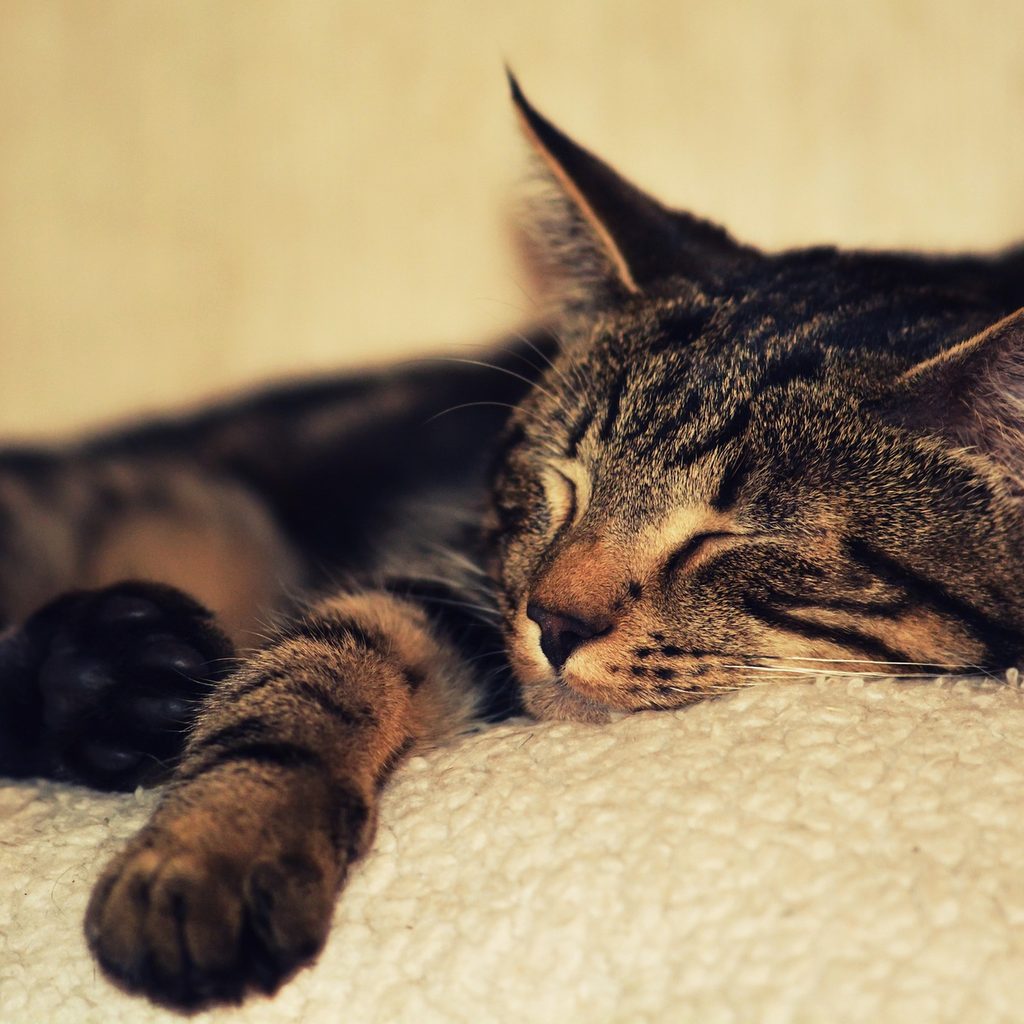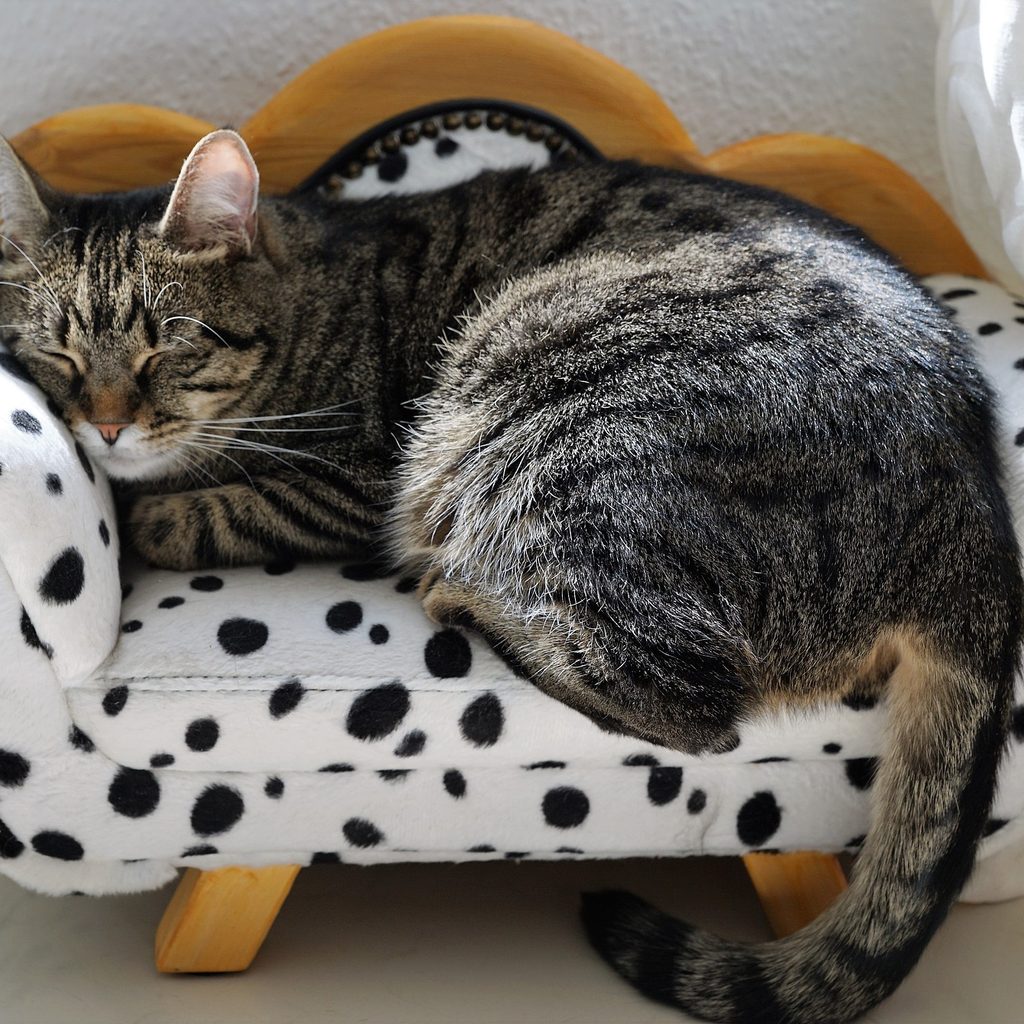If you’ve ever watched your cat in a deep sleep, you’ve probably noticed him twitching or otherwise moving, and maybe even making some noises. This is similar to how people can behave when they dream. While we’re still working to understand just how cats function and why they behave the way they do, scientists have learned quite a bit about feline sleep habits. The next time your cat decides to catch some Zzzs and you see him unconsciously in action, you’ll better understand just what’s going on and what you should do to keep him safe and happy.

Do cats have dreams?
Can cats dream? Probably, but we still don’t know a whole lot about their dreaming process. According to Purina, cats’ sleep cycles consist of rapid eye movement (REM) sleep and deep sleep. Your cat is more likely to move and dream during REM sleep. When cats enter this state, their eyes often twitch and their muscles relax, which is similar to how humans behave when we’re experiencing REM sleep. Kittens probably get more REM sleep than adult cats, which gives them a chance to process all of the information they’re learning about the world.
According to Rover, cat REM sleep cycles are short, and cats can experience REM sleep every 25 minutes. In comparison, people experience REM sleep every 90 minutes. This shorter REM cycle means your cat can experience REM sleep quickly, so even if she takes a quick cat nap, she could go into the REM phase.
Do cats dream about their owners?
When cats are in REM sleep, notes Purina, they often move their heads like they’re watching something. They are likely dreaming about a favorite feline activity: hunting. It’s also possible that cats dream about things that have happened that day, like sitting on the couch with you. We don’t yet know details of what cats are dreaming about, but if you’re a big part of your cat’s life, you’re probably in his dreams, too.
Can cats have nightmares?
Purina explains that we’re not entirely sure about this, but since cats can dream, they can probably also have nightmares. You might have noticed your cat suddenly waking up from a deep sleep and looking frightened or confused. In these cases, it’s possible that your cat has had a bad dream.
Should you wake a dreaming cat?
If you notice your cat is snoring, twitching, stretching, or otherwise moving around in her sleep, you’re seeing the signals being sent to her brain as he dreams. There’s probably nothing to worry about, and all of these behaviors are normal for cats in REM sleep. There’s also no need to wake your dreaming cat since you could unnecessarily startle her.

Can cats have trouble sleeping?
Rover notes that there are some instances where your cat might have difficulty sleeping. Sleep apnea can affect cats, causing their nervous systems to stay highly active even when your cat tries to relax for a snooze. Sleep apnea can also create breathing issues when your cat is asleep. It’s also possible for cats to experience insomnia. If your cat isn’t getting enough rest, you might notice that he’s unsettled at night. Some cats meow at night because of these issues. If you suspect that your cat is having trouble sleeping, talk with your vet and schedule an appointment for your cat to be evaluated.
If your cat dreams frequently, chances are she’s perfectly healthy and her body is just processing everything she’s experienced during the day. But your cat’s sleep habits can also hold a key to health issues. If you notice sudden or significant changes in how much, where, and how well your cat is sleeping, these changes could indicate that something is wrong and your cat might be experiencing a health issue. Other factors, like stress prompted by a recent move or a new pet or human addition to the home can also alter your cat’s sleeping habits. One of the best ways you can monitor your cat’s health is to get to know what sleeping habits are normal. That way you’ll have a heads-up on any possible problems if you notice a change in your feline friend’s resting routines.


